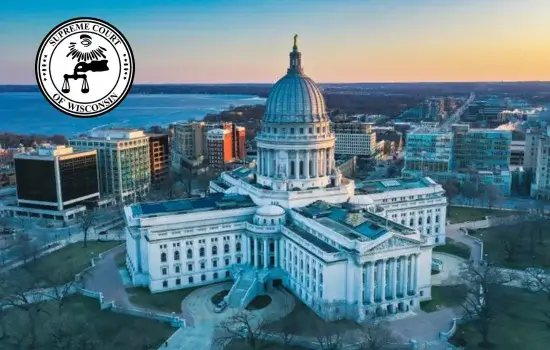In a groundbreaking decision, the Dane County Circuit Court in Wisconsin has reinstated collective bargaining rights for public sector workers, reversing key aspects of the controversial Act 10. Introduced in 2011 under former Governor Scott Walker, Act 10 had significantly curtailed these rights, sparking widespread protests and a protracted legal battle. The ruling marks a monumental win for labor unions and reignites the debate over workers’ rights in the United States.
What Is Act 10?
Act 10, also known as the Wisconsin Budget Repair Bill, was passed in 2011 as part of an effort to address the state’s budget deficit. The law eliminated most collective bargaining rights for public employees, except for police and firefighters. It also required public workers to contribute more toward their pensions and health insurance, effectively reducing their take-home pay. Over the years, Act 10 led to a sharp decline in union membership across Wisconsin and became a blueprint for similar laws in other states.
The Court’s Decision
The recent ruling by Dane County Circuit Judge Jacob Frost declared Act 10 unconstitutional, restoring the ability of public employees to negotiate wages, benefits, and other working conditions collectively. Judge Frost argued that the selective exemptions for police and firefighter unions created unequal treatment, violating constitutional protections.
“This decision reestablishes a fair playing field for public employees and ensures that their voices can once again be heard,” Judge Frost noted in his ruling.

Union Leaders Celebrate
Union leaders across Wisconsin have welcomed the ruling as a pivotal moment for workers’ rights. Ben Gruber, president of AFSCME Local 1215, expressed optimism but tempered it with caution.
“This is a big win, but we know the fight isn’t over. There will be appeals, but we are ready to stand our ground to ensure that all public employees have the right to negotiate for better wages and working conditions,” Gruber stated.
The decision is also expected to energize unions nationwide, offering renewed hope for collective bargaining efforts in other states.
Opposition from State Leaders
The ruling has drawn sharp criticism from Republican lawmakers and former Governor Walker, who described it as “judicial overreach.” Current Assembly Speaker Robin Vos signaled plans to appeal the decision, emphasizing Act 10’s role in stabilizing state finances and providing local governments with fiscal flexibility.
“This ruling undermines years of progress in Wisconsin,” Vos said. “We will fight this in higher courts to uphold the intent of Act 10.”
Broader Implications
The ruling has significant implications not only for Wisconsin but for labor rights across the U.S. It challenges the precedent set by Act 10 and similar laws in other states, which have systematically weakened public sector unions over the past decade. Legal experts believe the case may eventually make its way to the Wisconsin Supreme Court, where the current liberal majority could uphold the lower court’s decision.
The outcome could also influence labor policy in other states and fuel national conversations about workers’ rights, unionization, and economic equality.
A Return to the Spotlight
This ruling comes at a time when unions are experiencing a resurgence in public support. Recent strikes by Hollywood writers, auto workers, and healthcare employees have drawn attention to the importance of collective bargaining in securing fair wages and working conditions. The Wisconsin decision adds to this momentum, underscoring the enduring relevance of unions in a modern economy.
Challenges Ahead
Despite the optimism surrounding the ruling, the road ahead remains uncertain. The state government is expected to appeal, potentially delaying the reinstatement of collective bargaining rights. Additionally, the decision could become a flashpoint in Wisconsin’s 2024 Supreme Court elections, where labor rights are likely to be a major campaign issue.
Conclusion
The restoration of collective bargaining rights in Wisconsin is a historic milestone that has reignited the fight for workers’ rights. While challenges remain, the ruling represents a significant step toward reversing a decade of anti-union policies. As the legal battle continues, unions and workers nationwide will be watching closely, drawing inspiration from this hard-fought victory.
For Wisconsin’s public employees, this decision is more than a legal win—it is a validation of their right to negotiate for dignity, fairness, and respect in the workplace.

